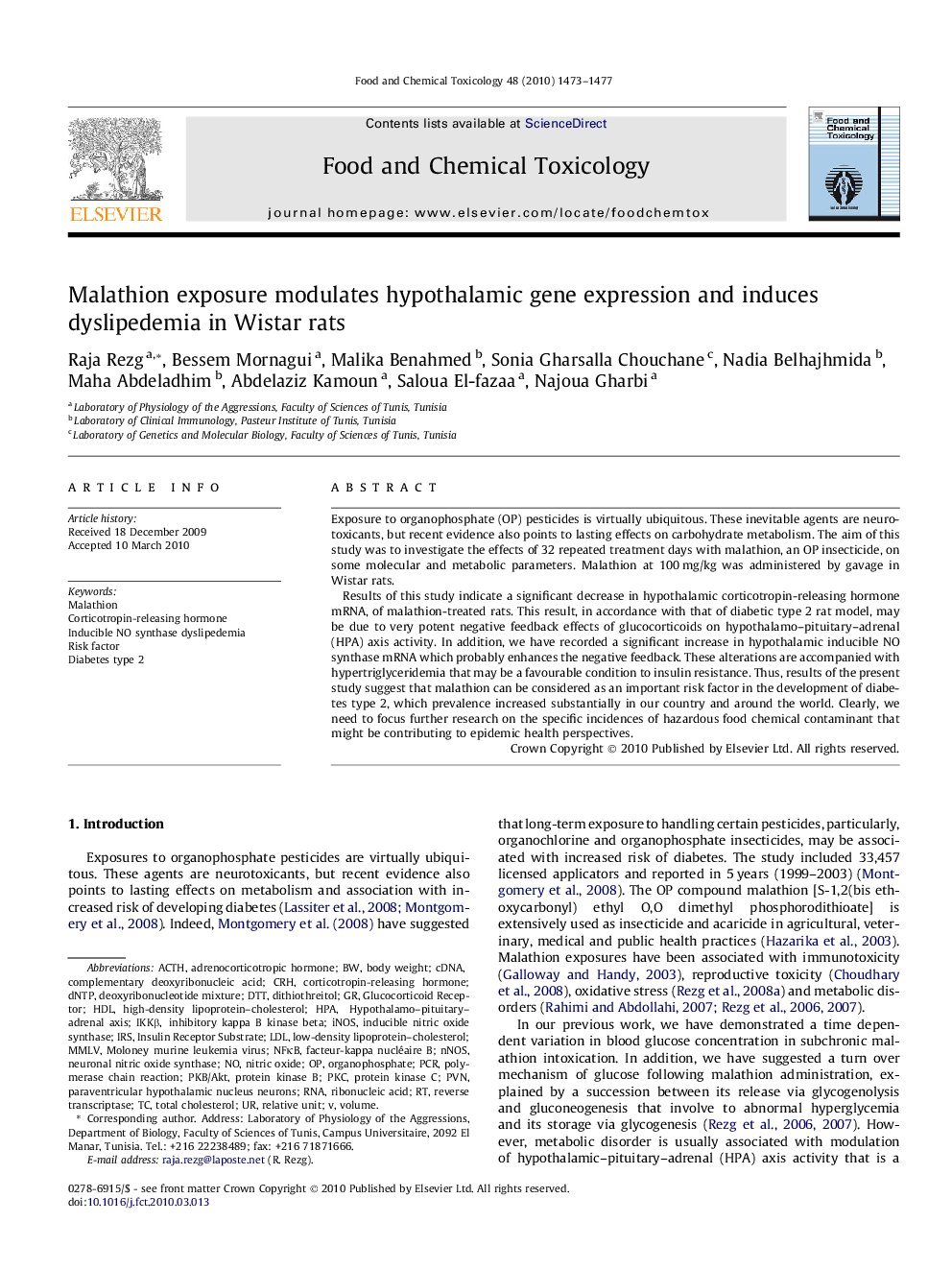| Article ID | Journal | Published Year | Pages | File Type |
|---|---|---|---|---|
| 5854166 | Food and Chemical Toxicology | 2010 | 5 Pages |
Exposure to organophosphate (OP) pesticides is virtually ubiquitous. These inevitable agents are neurotoxicants, but recent evidence also points to lasting effects on carbohydrate metabolism. The aim of this study was to investigate the effects of 32 repeated treatment days with malathion, an OP insecticide, on some molecular and metabolic parameters. Malathion at 100Â mg/kg was administered by gavage in Wistar rats.Results of this study indicate a significant decrease in hypothalamic corticotropin-releasing hormone mRNA, of malathion-treated rats. This result, in accordance with that of diabetic type 2 rat model, may be due to very potent negative feedback effects of glucocorticoids on hypothalamo-pituitary-adrenal (HPA) axis activity. In addition, we have recorded a significant increase in hypothalamic inducible NO synthase mRNA which probably enhances the negative feedback. These alterations are accompanied with hypertriglyceridemia that may be a favourable condition to insulin resistance. Thus, results of the present study suggest that malathion can be considered as an important risk factor in the development of diabetes type 2, which prevalence increased substantially in our country and around the world. Clearly, we need to focus further research on the specific incidences of hazardous food chemical contaminant that might be contributing to epidemic health perspectives.
